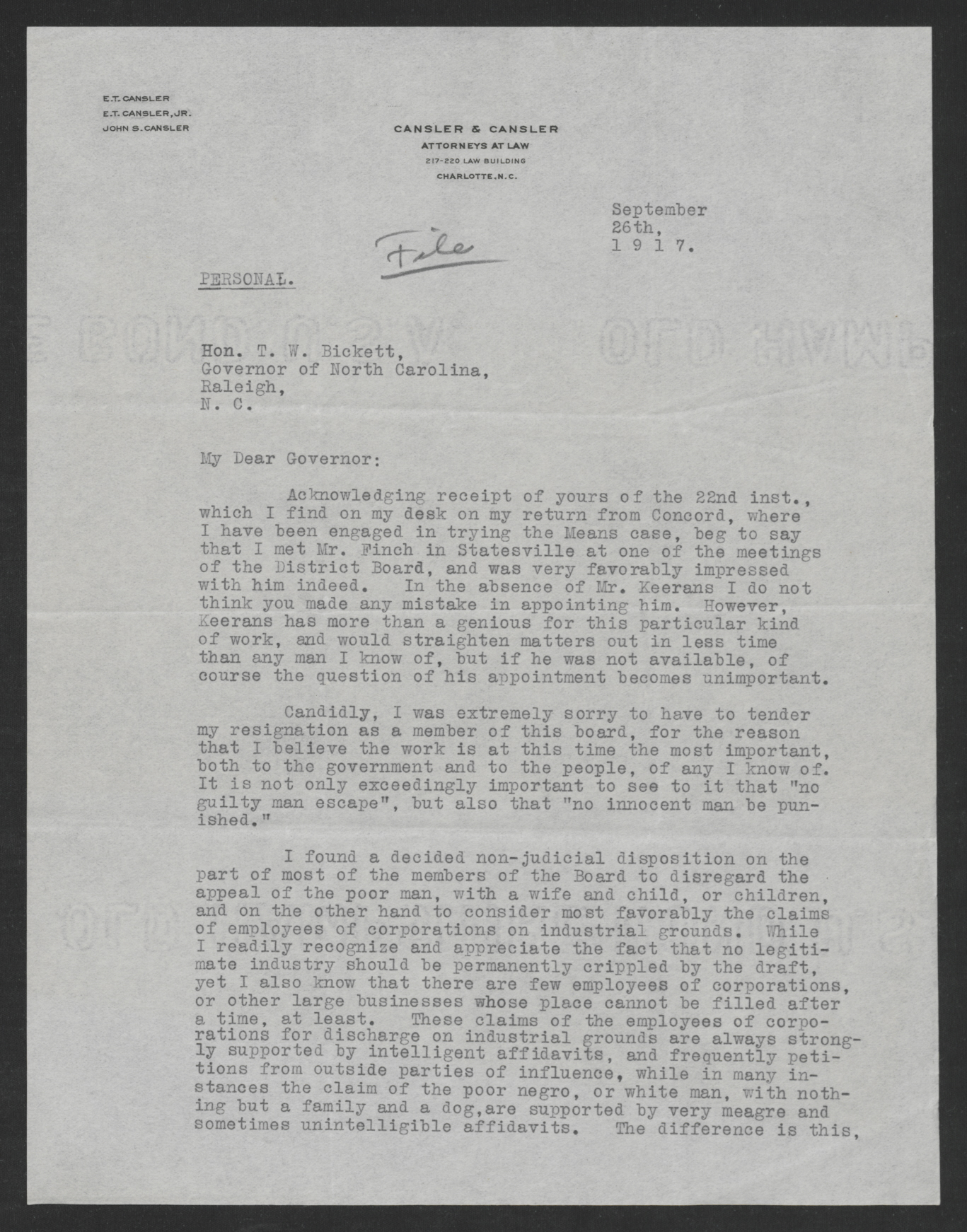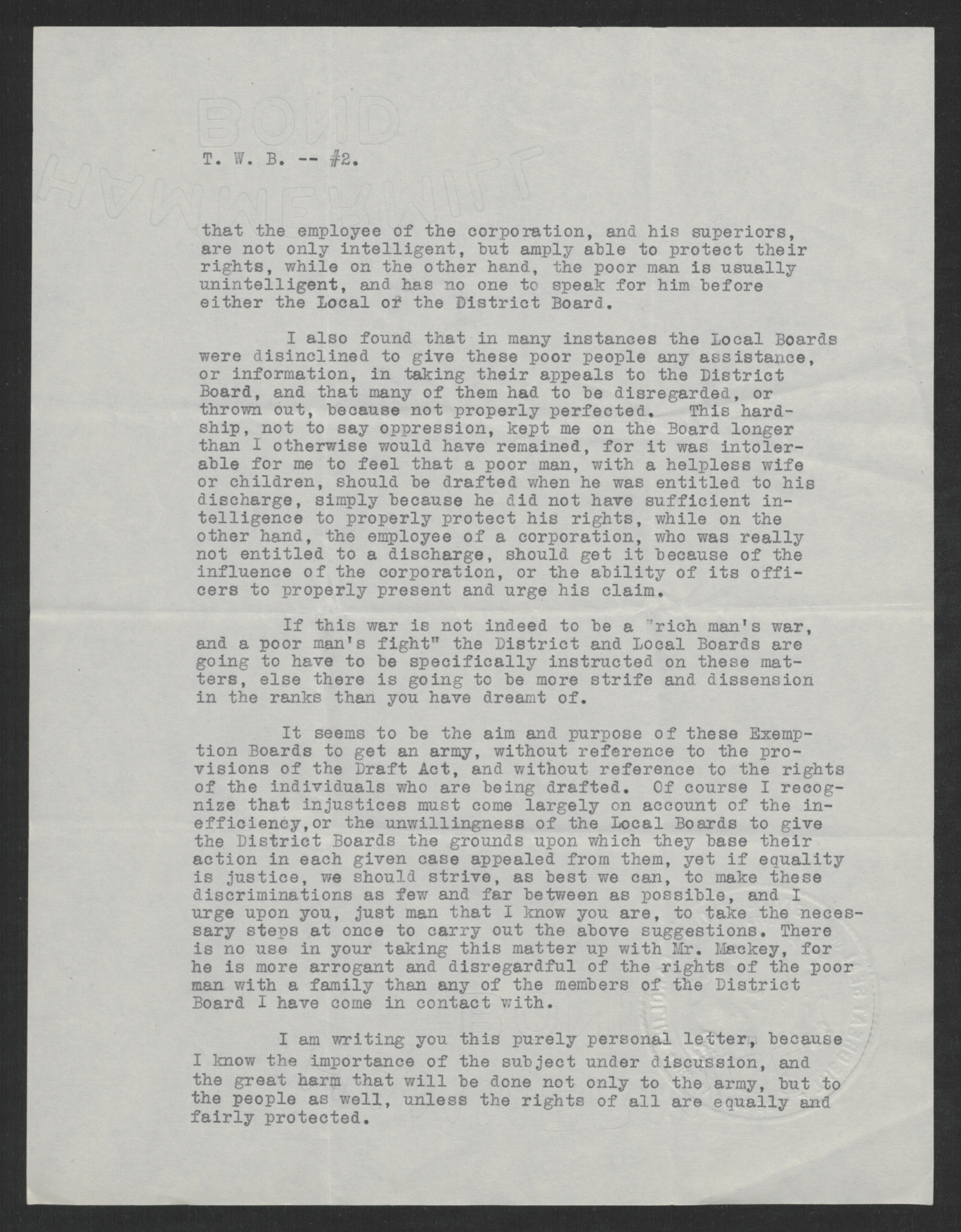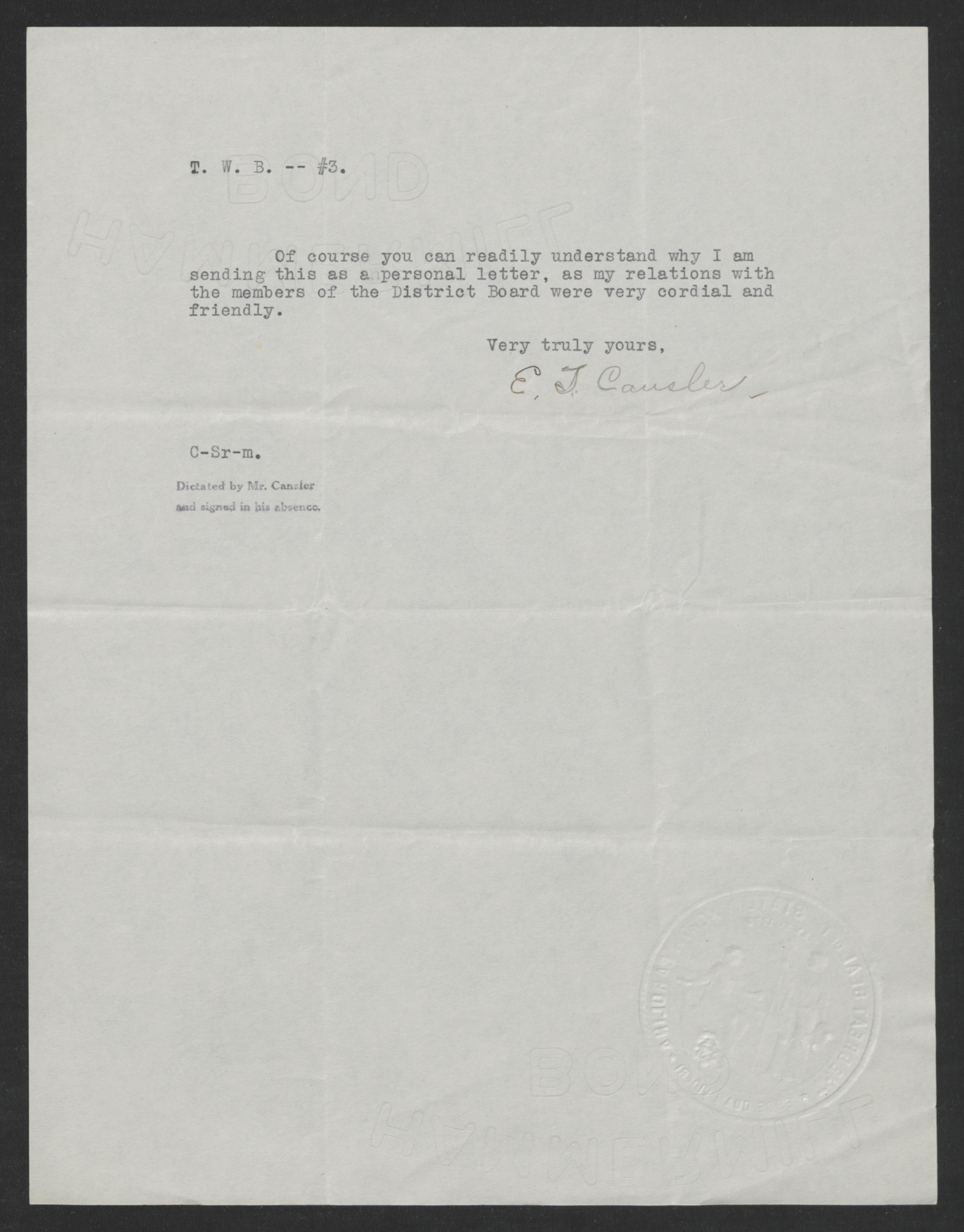CANSLER & CANSLER
ATTORNEYS AT LAW
CHARLOTTE, N.C.
<File>
September
26th,
1917.
Acknowledging receipt of yours of the 22nd inst., which I find on my desk on my return from Concord, where I have been engaged in trying the Means case, beg to say that I met Mr. Finch in Statesville at one of the meetings of the District Board, and was very favorably impressed with him indeed. In the absence of Mr. Keerans I do not think you made any mistake in appointing him. However, Keerans has more than a genious for this particular kind of work, and would straighten matters out in less time than any man I know of, but if he was not available, of course the question of his appointment becomes unimportant.
Candidly, I was extremely sorry to have to tender my resignation as a member of this board, for the reason that I believe the work is at this time the most important, both to the government and to the people, of any I know of. It is not only exceedingly important to see to it that “no guilty man escape”, but also that “no innocent man be punished.”
I found a decided non-judicial disposition on the part of most of the members of the Board to disregard the appeal of the poor man, with a wife and child, or children, and on the other hand to consider most favorably the claims of employees of corporations on industrial grounds. While I readily recognize and appreciate the fact that no legitimate industry should be permanently crippled by the draft, yet I also know that there are few employees of corporations, or other large businesses whose place cannot be filled after a time, at least. These claims of the employees of corporations for discharge on industrial grounds are always strongly supported by intelligent affidavits, and frequently petitions from outside parties of influence, while in many instances the claim of the poor negro, or white man, with nothing but a family and a dog, are supported by very meagre and sometimes unintelligible affidavits. The difference is this, that the employee of the corporation, and his superiors, are not only intelligent, but amply able to protect their rights, while on the other hand, the poor man is usually unintelligent, and has no one to speak for him before either the Local or the District Board.
I also found that in many instances the Local Boards were disinclined to give these poor people any assistance, or information, in taking their appeals to the District Board, and that many of them had to be disregarded, or thrown out, because not properly perfected. This hardship, not to say oppression, kept me on the Board longer than I otherwise would have remained, for it was intolerable for me to feel that a poor man, with a helpless wife or children, should be drafted when he was entitled to his discharge, simply because he did not have sufficient intelligence to properly protect his rights, while on the other hand, the employee of a corporation, who was really not entitled to a discharge, should get it because of the influence of the corporation, or the ability of its officers to properly present and urge his claim.
If this war is not indeed to be a “rich man’s war, and a poor man’s fight” the District and Local Boards are going to have to be specifically instructed on these matters, else there is going to be more strife and dissension in the ranks than you have dreamt of.
It seems to be the aim and purpose of these Exemption Boards to get an army, without reference to the provisions of the Draft Act, and without reference to the rights of the individuals who are being drafted. Of course I recognize that injustices must come largely on account of the inefficiency, or the unwillingness of the Local Boards to give the District Boards the grounds upon which they base their action in each given case appealed from them, yet if equality is justice, we should strive, as best we can, to make these discriminations as few and far between as possible, and I urge upon you, just man that I know you are, to take the necessary steps at once to carry out the above suggestions. There is no use in your taking this matter up with Mr. Mackey, for he is more arrogant and disregardful of the rights of the poor man with a family than any of the members of the District Board I have come in contact with.
I am writing you this purely personal letter, because I know the importance of the subject under discussion, and the great harm that will be done not only to the army, but to the people as well, unless the rights of all are equally and fairly protected.
Of course you can readily understand why I am sending this as a personal letter, as my relations with the members of the District Board were very cordial and friendly.
Very truly yours,







